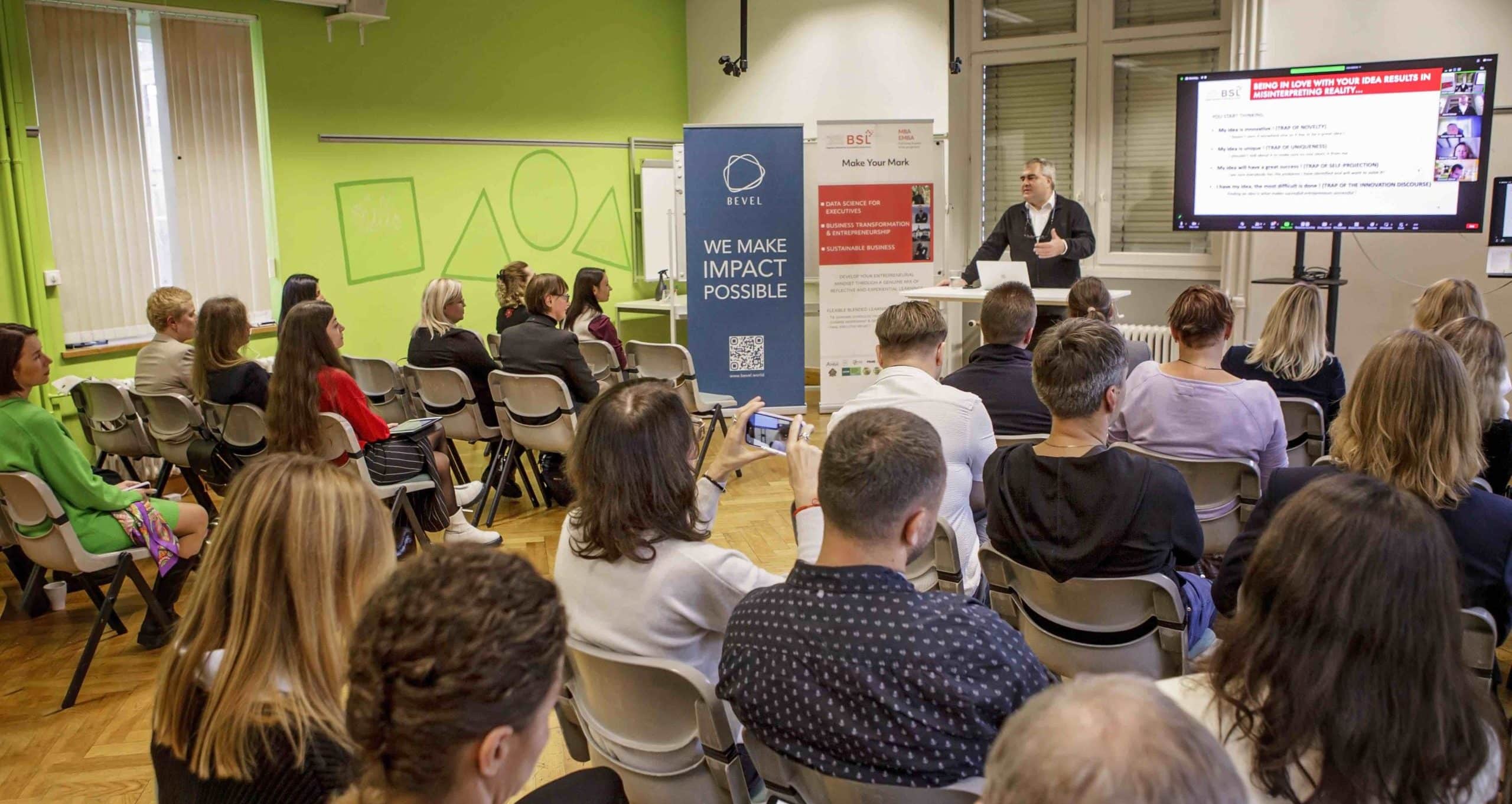
As a business education designer and employer, I constantly seek feedback from business executives regarding the soft or hard skills they look for when hiring or managing people in top positions. This feedback materialized in three essential maxims that will be the 2024 game-changers in successful careers. Linking these maxims with three new leadership competencies in the BSL blog would be helpful, for this description can benefit our future, present, and graduated students.
Deliver, do not just explain, or convince!
We are social beings, constantly interacting through language. The need for group work naturally leads to multiple occasions of discussing … reflecting … drafting … designing, brainstorming … imagining … exchanging … nurturing … preparing … planning … advocating, challenging … questioning … exploring … contemplating … considering … revising … assessing … searching potential solutions.
Communication has, hence, been a competency identified in leaders for decades. Leadership development, therefore, worked on developing this competency, and masters of communication became praised role models.
Given the complexity of today’s problems and their emergency, conducting an extended conversation on the solution to be found might prove less relevant than giving a shot at the problem. Today’s successful leaders are not only expected to explain problems or gain teams’ buy-in but must also be able to walk all the talk and deliver concrete results.
Data interpretation is a new seniority.
Senior leaders base the relevance of their decisions on their experience. Time has allowed them to observe and, most likely, participate in multiple trials. Time has also allowed them to measure the results of these trials. Patterns perceived during this patient observation and long-time participation nurture informed and, more often than not, relevant decision-making.
When change accelerates and the number of trials to observe grows exponentially, human perception must be helped. Time is ripe for data collection, data analysis, and – ultimately, data interpretation. Past events are no longer the only source of knowledge; real-time records can also provide an in-depth understanding. This is not to say that data should systematically prevail over experience, but rather that data and experience should constantly challenge each other.
Not being sure is the only way to radically new solutions.
All of us would rejoice at being considered innovative. Few of us are ready to pay the price of innovation, which is experiencing the initial ignorance of what needs to be done. Repeating proven truths does not lead to radically new solutions, but to pragmatic ones. We will be praised as problem solvers, yet to be as innovators.
Innovating consists in exploring unknown territories. This does not go without risks, including one of the most terrifying for leaders, which is admitting they don’t know. Although only a first step, this admission is obligatory for those serious about thinking out of the box. The capacity leaders should develop does obviously not lie in ignorance but rather in unlearning the usual links between their various pieces of knowledge. Schumpeter’s definition of entrepreneurship as a creative destruction fully applies to understanding this new competency.
The leadership competencies associated with the three maxims should be present in all business education programs and, more importantly, in continuing education programs. At BSL, we have packed our Executive Education with a specific mix of experiential learning, data science and entrepreneurial mindset to ensure they remain relevant in 2024.
Dr. David Claivaz
